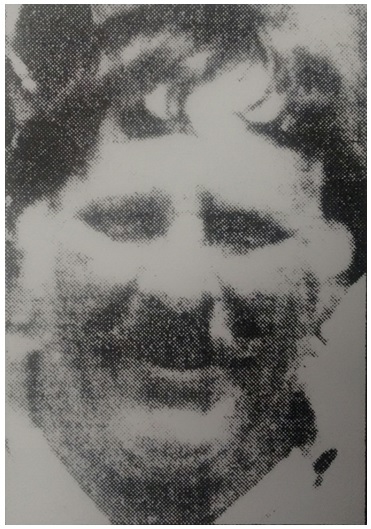Vancouver, British Columbia / August 15, 1984
|
Mr. Gold, a 54-year-old father of two adult children, was found dead at a popular "lovers lane" spot in Queen Elizabeth Park shortly before midnight. Police were called to the scene at 12:02 am. Mr. Gold, like John McKechnie, was described by fellow drivers as a "gentle giant". He had been shot five times in the head and back with a .45 calibre handgun. His watch and wallet were untouched. His cab, Yellow Taxi no. 131, was found in an underground parking lot in Richmond about 8 am. Two cars and a van were parked near the murder scene at the time of the shooting. Two witnesses came forward and under hypnosis one of them gave police a description that was used to create a composite drawing of the suspect. The murder was re-enacted on a Crimestoppers television segment. The police board and the Vancouver Taxi Owners Association combined to offer a $20,000 reward for information leading to the conviction of Mr. Gold's killer. Vancouver drivers flew strips of black cloth from their radio antennas. A Kelowna taxi company collected donations for Mr. Gold's family. His funeral was attended by 300 people and an estimated 200 cabs joined his funeral procession. No new leads resulted from the publicity, but a break came in January, 1985 when police arrested a man for possession of an illegal handgun which turned out on examination to be the murder weapon. The .45 calibre Colt pistol had been borrowed from local gun collector who told police that he had loaned the same pistol to a second man from March to September, 1984. The second man admitted to firing the gun five times, but denied shooting Mr. Gold. He was arrested and charged with second-degree murder. The trial opened in June, 1985, but after seven days the judge declared a mistrial, telling the jury only that "an unforeseen matter" had arisen. The second trial took place in October, 1985. In this trial it turned out that the two witnesses critical to the prosecution's case -- man who had the murder weapon in his possession and the gun collector he borrowed it from -- both lied to police about when and how they originally acquired the Colt. Their perjury came to light when two Vancouver police detectives traced the gun back to an American pawnbroker who sold it some time after the two men claimed to have obtained it. The gun had been smuggled into Canada from the U.S. in 1982 and the collector was afraid that the smuggler would seek revenge if this came to light. The defence used the perjury to cast doubt on the gun collector's claim to have loaned the gun to the murder suspect in March, 1984. |

Frank Harry Gold. (Source: Vancouver Sun, August 22, 1984, p. A3) The Crown presented other circumstantial evidence implicating the suspect, including the facts that Mr. Gold dropped his last known fare at an address only five blocks from the suspect's residence; that he was shot in Queen Elizabeth Park about 15 minutes after leaving that address; that the suspect's roommate saw the suspect wearing a gun in a shoulder holster close to the time that Mr. Gold was shot; and that the suspect possessed a .45 calibre Colt handgun and ammunition at the time Mr. Gold was killed. Nevertheless, with the testimony of the two key prosecution witnesses tainted, the remaining circumstantial evidence was not sufficient to dispel reasonable doubt in the minds of the jury and the accused suspect was acquitted. In March, 1987 the man who was originally found in possession of the murder weapon was sentenced to a year in jail on three counts of perjury. In May, 1987 the gun collector was convicted of two counts of perjury and sentenced to six months in jail. However, the judge recommended that he be classified for work release at the earliest possible date since he had a wife and child. In sentencing him the judge said that because of the perjury "it is possible that a murderer is now walking the streets of Vancouver as a free man." |

 • Driver Profiles
• Driver Profiles